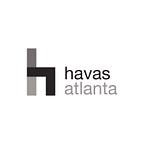The U.S. Women’s National Team Won On and Off the Field
The brands behind the USWNT are the essential assist in making those off-the-field goals.
Without a doubt, during the 31 days, 17 total games and 1,530+ minutes of playtime, the U.S. Women’s National Team has won both on and off the field. Yes, the 14 wins, 55 goals and the FIFA Women’s World Cup Trophy that this all-star team brought home are remarkable, but, it is how they have used their win that has brands jumping to become part of this culturally important moment.
In the recent years surrounding the USWNT, most of the chatter has all swung back around to the discrepancies in pay between female and male athletes. Whether that looked like Twitter disputes or appearances on national television, the USWNT had no fear when getting their point across that something — and we mean a lot of things — were not right.
So where do brands come into this? Here’s what we know. Throughout the USWNT rise in the rankings, the total viewership peaked at roughly 20 million, making it the most-watched soccer match in English television history, according to FOX Sports. USWNT player, Megan Rapinoe, raked in 8,959,001 social media engagements through interactions and video views during the World Cup. Nike reached the top of the ranks with 16,493,925 engagements on branded posts.
Brands have the power to continue to leverage this viewership in a meaningful way by getting behind the words that these 23 women are screaming from the rooftops. When the USWNT speaks out about their rights as athletes, their words hold truth and authenticity. In the same capacity, the brands that are integrating themselves into this moment should hold the same level of authenticity. According to Accenture, 62% of customers want companies to take a stand on current and broadly relevant uses like sustainability, transparency or fair employment. Consumers are drawn to brands that make emotional connections with their environments.
Brands like Nike and Proctor & Gamble have successfully united their brands with this culturally relevant moment. And how did they do that? By matching their words with their actions.
Nike is no stranger to advocacy. The brand has become famous for aligning themselves with social causes. From Colin Kaepernick to the release of their 60-second video, “Never Stop Winning”, following the FIFA Women’s World Cup, Nike makes sure to stay authentic in their messaging and support things that they truly are passionate about. And here’s the thing — it works for them! Their stock has rallied more than 17% this year, bringing their market cap to roughly $138 billion (CNBC). Their “Never Stop Winning” ad highlights the fact that the USWNT is indeed the greatest ever. Beyond that, Nike exclaims that when they win, we all win. Through focusing on Megan Rapinoe, Nike is firmly standing behind what all of the women on the team are advocating for — equality in sports. Rosemary St. Clair, the head of Nike’s women’s division, has said that they are capitalizing on the energy that has come from the FIFA Women’s World Cup and are ready for the impact that this moment is going to continue having on women’s business.
Proctor and Gamble has taken it a step further. They have surpassed walking the walk and talking the talk. They became the walk, and many would say that other brands are close to following in their footsteps. They decided to take advocacy a step further and morphed their words into a tangible and measurable action. P&G announced that they are making a donation of $529,000 to The U.S. Women’s National Team Players Association. This symbolic gesture of the $23,000 for each of the 23 members of the team shows that they are on the right side of making history. This action has resulted in a large amount of chatter on social media, and if we know anything from Nike, they are more than likely to reap the benefits from speaking up.
Both Nike and P&G are two great examples of what it looks like to stay authentic in their brand messaging. While the brands are benefitting from supporting these 23 women, they also are helping these women’s voices be heard. It is brands like Nike and P&G that are expanding and broadening their platform to allow their voices to be heard and these important conversations to be had. Nike and P&G, just like any brand that decides to take a stand, have a platform and the ability to change and do good.
By: Peri Odachowski, Havas Sports & Entertainment
